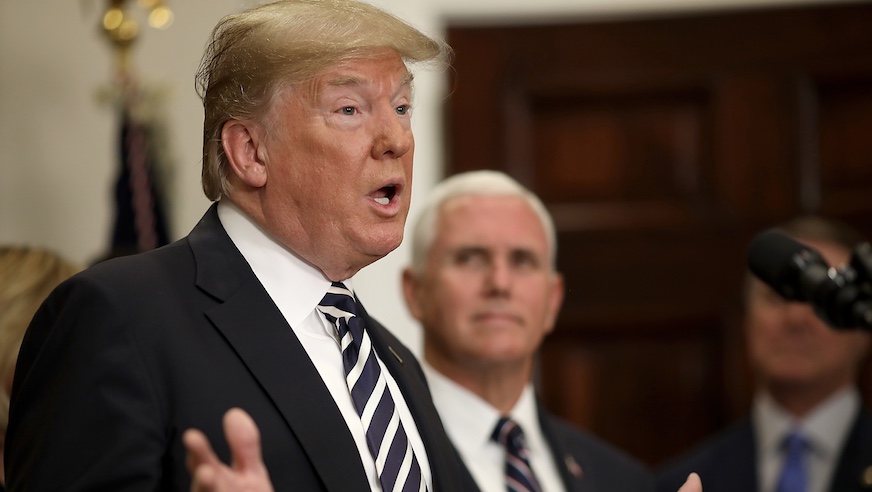The historic meeting between U.S. President Donald Trump and North Korean leader Kim Jong Un that was expected to take place on June 12 has been canceled. In a letter, released by the White House on Thursday, Trump wrote that “based on the tremendous anger and open hostility displayed in your most recent statement, I feel it is inappropriate, at this time, to have this long-planned meeting…Therefore, please let this letter serve to represent that the Singapore summit, for the good of both parties, but to the detriment of the world, will not take place.”
Julian G. Ku, director of international programs at Maurice A. Deane school of law at Hofstra University, gave Metro his insight on the decision, which ended months of diplomatic advances between the two countries
What to know about canceled North Korea summit
Q: Why did Trump cancel the meeting with Kim Jong-un?
Ku – It is hard to say for sure why the meeting was canceled by President Trump. It may simply be a negotiating tactic to make the North Korean government demonstrate its willingness to discuss denuclearization. Or it may simply be because the President feels the North Koreans misled him on the level of seriousness they have toward the talks, and he now realizes the talks would not have accomplished anything.
Q: Who wins and who loses after this decision was announced?
I think there are no clear winners or losers. President Trump will lose out the possibility of a diplomatic achievement before the 2018 elections, so he faces the most immediate short-term cost. But Kim Jong-un will lose out on the opportunity to win global public recognition of his status as a world leader and to reduce economic pressure on his country. In the long term, I think this will be a bad outcome for North Korea more than for the United States.
Q: Could another summit of this kind be achieved?
A new meeting would almost certainly require a better understanding of what each side is willing to discuss and negotiate during such talks. I think an initial meeting of the two countries’foreign ministers or other diplomats would probably be a better way to proceed rather than start with such a high-level meeting. In other words, the U.S. Secretary of State could speak with his counterpart and lay out a specific set of topics that both sides are willing to discuss.
Q: What role would South Korea and China play in such situation?
Both countries are crucially important to making a summit successful. South Korea’s support for a meeting is necessary for any successful outcome since it is the country most affected by any decisions there. South Korea has been the primary driver of these peace talks and it has a strong incentive to continue to support talks.
China’s support of North Korea is also crucial in pressuring it to enter into negotiations, but also in supporting it when it faces isolation and pressure from the U.S. China’s reaction to the cancellation of the meeting may be crucial to whether North Korea relents and returns to the talks.
Q: Threats and pressure have been part of President Trump’s negotiation strategy. Is it somewhat similar to what Kim Jong-un does? Could it be the reason that summit was called off?
In many ways, President Trump’s colorful language is quite similar to the language used by the North Korean regime in previous years. So both sides are now using inflammatory rhetoric to set out their positions. The problem with this approach is that it is easy for each side to insult the other and undermine their relationship through public comments. This may explain why the meeting was ultimately canceled.
















